
SUNDAY SHUTDOWN #21 will not be appearing this week, too tired, post holiday sh*t to get done, work tomorrow, need some sleep, life.

SUNDAY SHUTDOWN #21 will not be appearing this week, too tired, post holiday sh*t to get done, work tomorrow, need some sleep, life.
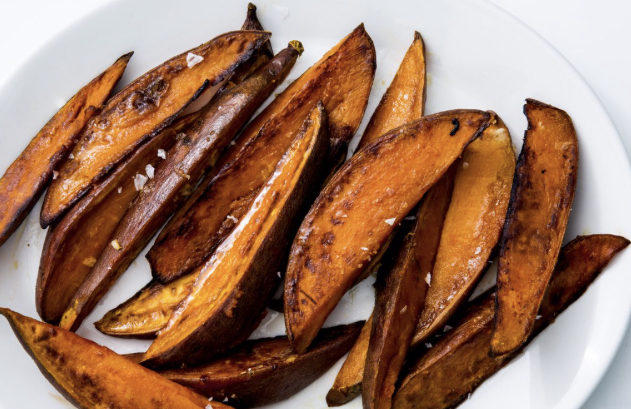
SUNDAY SHUTDOWN #20 THE SWEET VS THE STANDARD POTATO⠀
This one’s a goodie, what’s the deal with sweet potato being the best thing since sliced bread? And is it actually? Why have we shied away from the traditional spud?⠀
Sweet potatoes found their fame as part of the low carb movement, which negatively impacted our love of potatoes. It’s now commonplace to see sweet potato fries, mash, hash, roasties and even noodles ?⠀
?Sweet potatoes contain less calories than standard potatoes. It’s negligible really in the grand scheme of things. A favourite chain of chicken restaurants sell both chips and sweet potatoes wedges, there is a 50 calorie difference between the two. Ask yourself if it’s worth the sacrifice. ?They also contain less protein and yes, less carbohydrates. But certainly not none!⠀
?However, it’s worth noting they are called sweet potatoes for a reason, and their carbohydrate makeup is higher in sugar than their standard friends.⠀
? Regular potatoes contain more resistant starch which becomes available for the gut to benefit from when you cook and then cook them. So potato salad is a winner here!
? They are also a great source of vitamin C⠀
? Potatoes often get a bad wrap about their GI (which is the amount they raise blood sugar after consumption). However whilst they are classed as high GI, and sweet potatoes are low GI the truth of the matter is very rarely do we consume potatoes in isolation. We consume them with other foods too, which will impact their GI, it also depends how they are cooked. So GI is kind of irrelevant. ⠀
I’d recommend always keeping the skin on whatever the spud you choose. It might be different from your “normal” but the skins contain extra fibre, also great for the gut.⠀
So you can enjoy both, and I certainly wouldn’t advise sacrificing the traditional spud for it’s sweeter variety just because you think it’s healthier for you. Or because you are trying to lose weight.
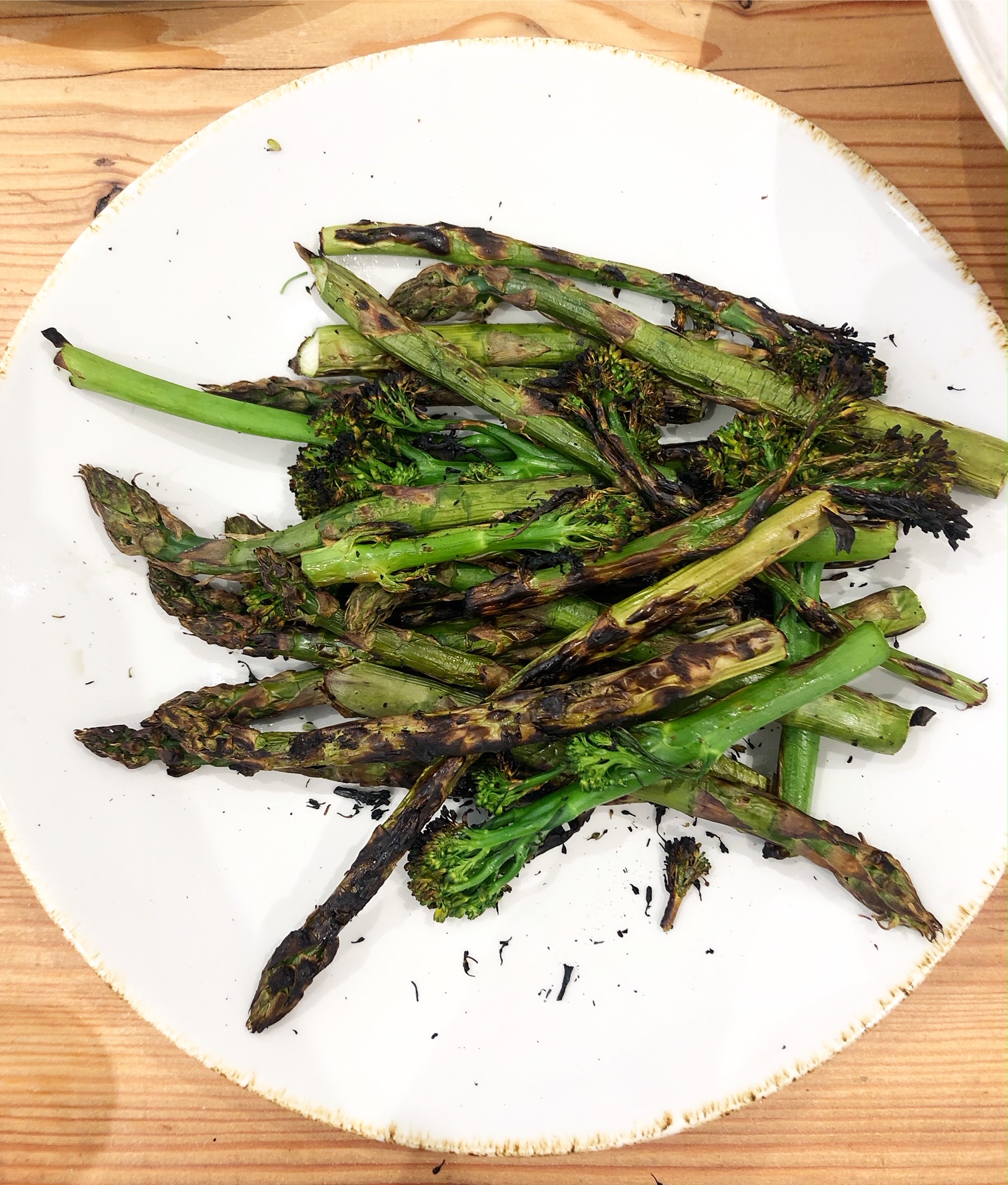
SUNDAY SHUTDOWN #19 STARVATION MODE
I’ve been asked this countless times and after last weeks poll, it was a clear winner for this weeks topic. Is there such a thing as starvation mode? Why do I suddenly just plateau even though I am barely eating. I promise I am still in a calorie deficit. Is this starvation mode?
When you lose weight your basal metabolic rate decreases. This is the amount of energy you need to simply just stay alive. As you become lighter, it becomes lower.
Also when you become lighter your body becomes more efficient, this often happens without you knowing. You adapt to what you have been eating and your body learns how to spend less energy. Like when you travel the same way to work each day, and then someone tells you about a short cut, you adapt.
You will, unknowingly fidget less, you are more likely to walk less and use less hand gestures. You facial tone may even change if you have been dieting for a long time.
When you are eating very little, you will also be tired. When you are tired, it’s a lot more difficult to be motivated.
The very well known Minnesota study, conducted by Ancel Keys in 1944-45 during WWII investigated the effects of severe dieting. The study was small with only 36 participants (which is worth noting) and it was broken down into three phases:
▪️Control phase, where data was collected for each person involved in the study, 3 months
▪️Starvation phase, where the individuals were starved for 6 months.
▪️Recovery phase, 3 months
This study demonstrated some of the points I have mentioned above, it also demonstrated detrimental psychological effects, including diminished sex drive. What is also showed, in some subjects, was oedema, the build up of water. Which if you are using the scales a measure of body fat won’t tell you either way. The subjects had a 40% reduction energy expenditure (calories burned) of which they calculated 25% was due to weight loss and 15% was due to their bodies adapting.
So no, starvation mode is not a thing. Just think about the term ‘starvation’ and what it means. Now think about how that relates to fat loss. If you are genuinely consuming fewer calories than you are using you will continue to lose fat. However as our body weight gets lower and lower, what you thought was originally a calorie deficit, is now in fact your maintenance calories. When you weigh less you need fewer calories to live day to day.
There are of course strategies to help you overcome this and work towards your goal. For further info or support on this get in touch.

SUNDAY SHUTDOWN #18 FASTED OR FED⠀
In light of yesterday’s insta story I wanted to elaborate a little on this one.⠀
Many people (still) believe that exercising first thing in the morning, or in a fasted state means they will burn more calories and therefore lose fat faster.⠀
Sorry to break it to ya folks but this simply isn’t true and the evidence certainly doesn’t support it.⠀
Firstly, imagine you currently enjoy exercising after work and manage 4 sessions a week. But then John from customer services tells you if you exercise as soon as you wake up in the morning you’ll lose fat faster. So you try to get up earlier but because you hate mornings and it’s not your thing you only manage 2 sessions a week. That means less sessions and less progress at the detriment of your goal. Still with me?⠀
Science wise, a meta analysis conducted in 2017 by Hackett and Hagstrom found that exercising in a fasted state didn’t improve fat loss. The main contributing factor, unsurprisingly, was creating a consistent calorie deficit.⠀
Prior to this a study from 2014 by Schoenfeld et al, which was included in the above meta analysis, also found no advantage of fasted cardio vs fed for fat loss. In both groups (fasted and fed) calorie intake was quite low and both groups lost weight irrespective of when they did their exercise.⠀
So, point in question, exercise when it works for you because that will lead to a consistent calorie deficit over time resulting in fat loss. It also means you are more likely to actually do it and reap the other benefits for your overall health! Question anyone who tells you anything different.

SUNDAY SHUTDOWN #17 FOOD OR EXERCISE FOR FAT LOSS: I hear it quite a lot “yeah but I’ve started exercising and I’m still not losing weight.”⠀
Truth is, for fat loss what you put in your mouth is going to have the biggest impact. For most people, it’s easier to be in control of what you eat and drink and make positive changes there. Don’t get me wrong generally being more active, walking more, not sitting down for endless hours, hitting a minimum of 10,000 steps a day before you do any exercise is also going to contribute. The food is where you need to start. ⠀
So, what does the literature tell us? ⠀
In the long term exercise is more likely to help us maintain our weight. So it’s a good habit to build. And at a time when you are motivated to make changes, that could also be the right time to start finding something you love doing, movement wise.⠀
⠀
In the short term exercise will help to improve your body composition. As a result of lifting weights consistently you will become stronger.⠀
The research also tells us that when we do complete strenuous physical exercise we are likely to consume more food because we are actually hungrier. Your body knows this. And it will want you to in essence, refuel. ⠀
Some perspective courtesy of @one.angry.chef recent book the truth about fat:⠀
Running on a treadmill for half an hour will burn circa 300-400 calories (depending on your weight and intensity) yet half an avocado on two slices of medium toast has about 450 calories. So you can see it doesn’t take much to negate that run in the first place.⠀
For health. Now that’s a different story. Exercise for health. Yes. Exercise because it reduces your risk of developing type 2 diabetes and cardiovascular disease. Exercise because it allows your mind to relax. Exercise for social reasons. Exercise because it makes you feel great!
But please don’t think you can burn off all your food or because you’ve #workedout everyday this week you’ve got a licence to eat more than you physically need.
? from yesterday’s BBQ!
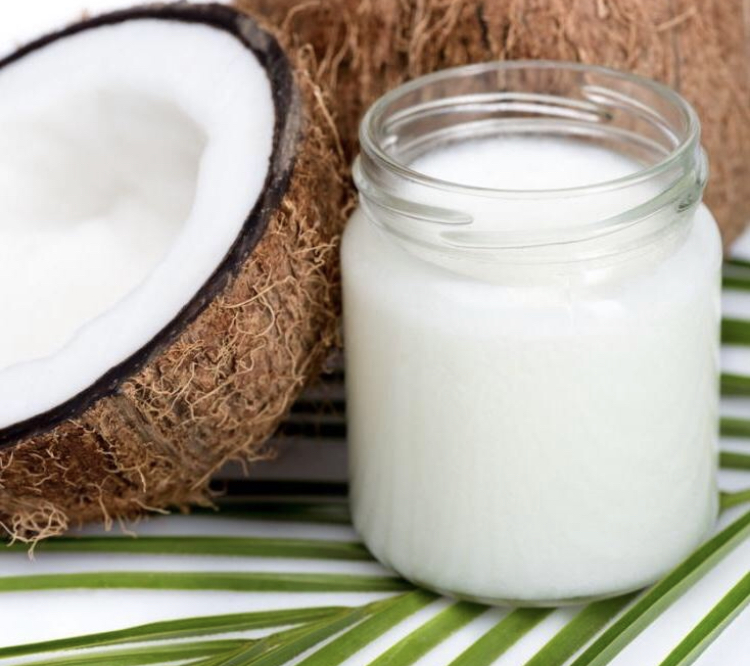
SUNDAY SHUTDOWN #16 Coconut oil, the most superior oil in the world right? Hmmm let’s see…⠀
Coconut oil started becoming trendy in the U.K. about 5 years ago and has since apparently contributed towards weight loss, better skin, enhanced memory and supporting a healthy heart.⠀
So what do we know about coconut oil:⠀
? It’s high in saturated fat. Don’t immediately think “bad” it’s just a fact. This also means it’s solid at room temperature.⠀
? It flavours food, so if you don’t like the taste of coconut oil it’s probably not for you.⠀
? It’s a stable cooking oil but shouldn’t be used for frying as it has a low smoke point, ie. it burns easily.⠀
A review of lots of studies (meta analysis) by Eyres et al in 2016 found that it does raise total and LDL (the dangerous type) cholesterol more than other plant oils (like sunflower, olive or rapeseed) but less than butter. So if you have high cholesterol may be best to chose another oil. ⠀
.⠀
On the weight loss front, science talk coming……it was once thought that coconut oil behaved in the same way as medium chain triglycerides (MCT) which when consumed can reduce food intake by making you feel more satisfied with the meal you’ve consumed. However, a clinical study conducted by Kinsella et al in 2017 found this was not the case and coconut oil does not work in this way. So that’s out the window too. ⠀
⠀
Any information you see about skin health is purely anecdotal which means whilst it may work for some, it won’t for others. ⠀
The truth is there are simply not enough studies out there to show what impact, positive or negative coconut oil has on our overall health. So be sensible, if weight loss is your goal I wouldn’t recommend adding extra fats to your diet. If health is your goal my advice has always been to use a variety of oils, that way you can benefit from the nutritious properties of them oil. ⠀
? Rapeseed/canola oil for frying⠀
?Olive oil for roasting⠀
? Extra virgin olive oil and/or sesame oil for dressings or anything that doesn’t involve heating⠀
? Coconut oil for baking⠀
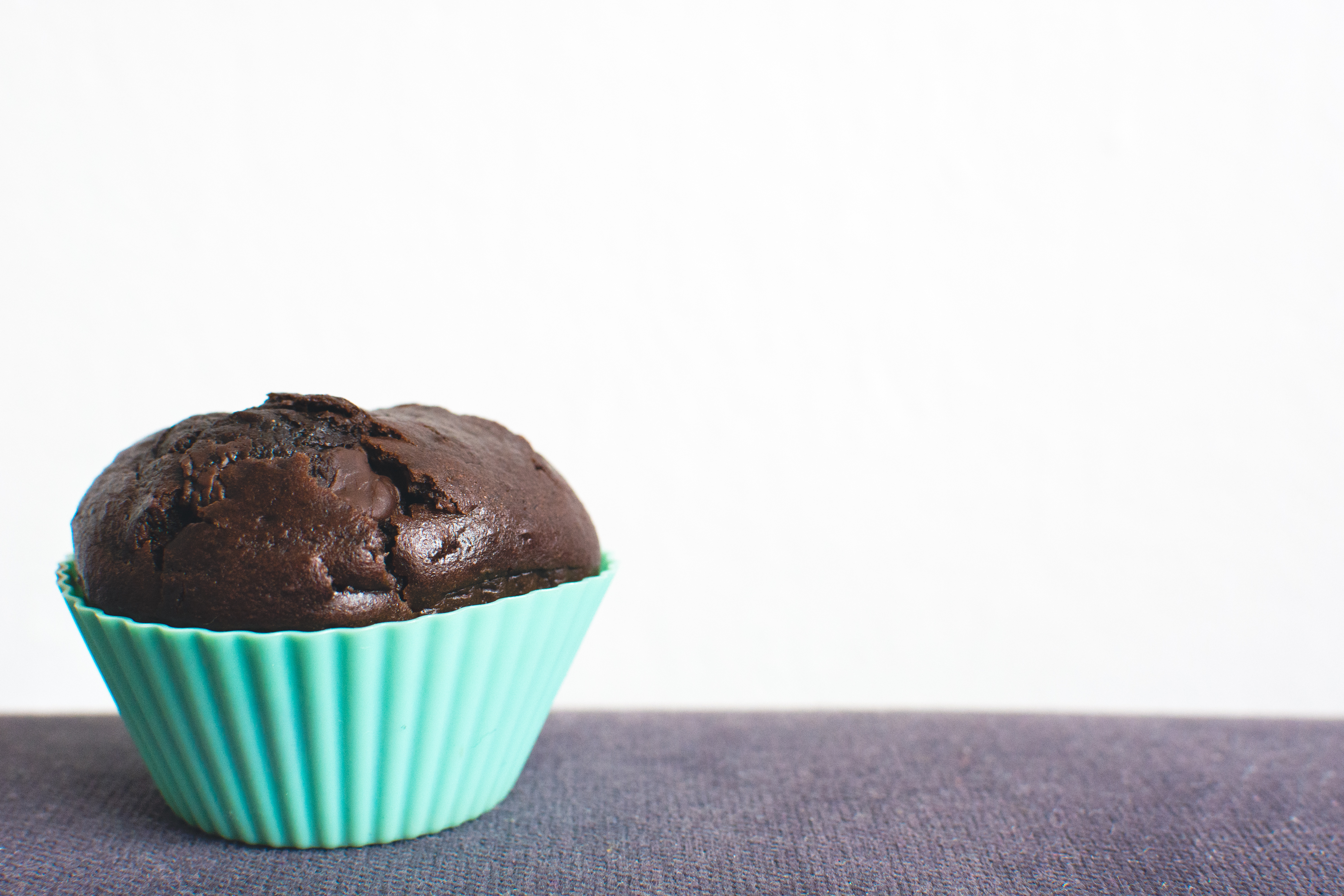
SUNDAY SHUTDOWN #15 Sweeteners
I blogged on this last year which is useful for further reading, however wanted to write up a short summary for anyone who just wants to know the facts. Now.⠀
Low calorie sweeteners (LCS) come in a few different forms, artificial or a little more naturally from plants, you’ll know these as things like aspartame, saccharin or stevia. They are typically used in food manufacturing to replicate the taste of sugar without the calories or the damage to teeth. Many consumers now prefer the taste of the products made with LCS over their sugary counterparts.⠀
The current research base tells us that artificial sweeteners are not harmful to human health. The majority of studies showing any negative effect or link to disease have been done on animals and the initial cause for concern started way back in the 1970’s. Needless to say research has come on a fair bit since then. There are some observational studies which show that consumers of sweeteners tend to have a higher BMI, however, a meta-analysis conducted by Rogers et al (2016) found that sweeteners may actually aid weight loss. Given that this period of time (during weight loss) is not life long, consumption during this short term period while behaviour change is discussed may be a worthwhile consideration. Further to this, a meta analysis by Conz et al in 2023 showed conflicting results when looking at the effect of LCS on gut microbiota. Some studies presented an null effect on human health and others showed a lack of significant effects at all. This comes down to many other factors such as overall diet quality, metabolism, current health of the gut and dietary habits.
There was once a school of thought that using artificial sweeteners meant you were more likely over eat at other occasions throughout the day. However, a recent randomised controlled trial by Fantino et al (2018) showed that short or longer-term consumption of LCS beverages with meals does not affect appetite and hunger or overall calorie and food intake.
And practically from a coaching perspective, if you are trying to lose weight and you can cut circa 150 calories from swapping a sugar sweetened beverage to a “diet” variety then you should. Done.⠀
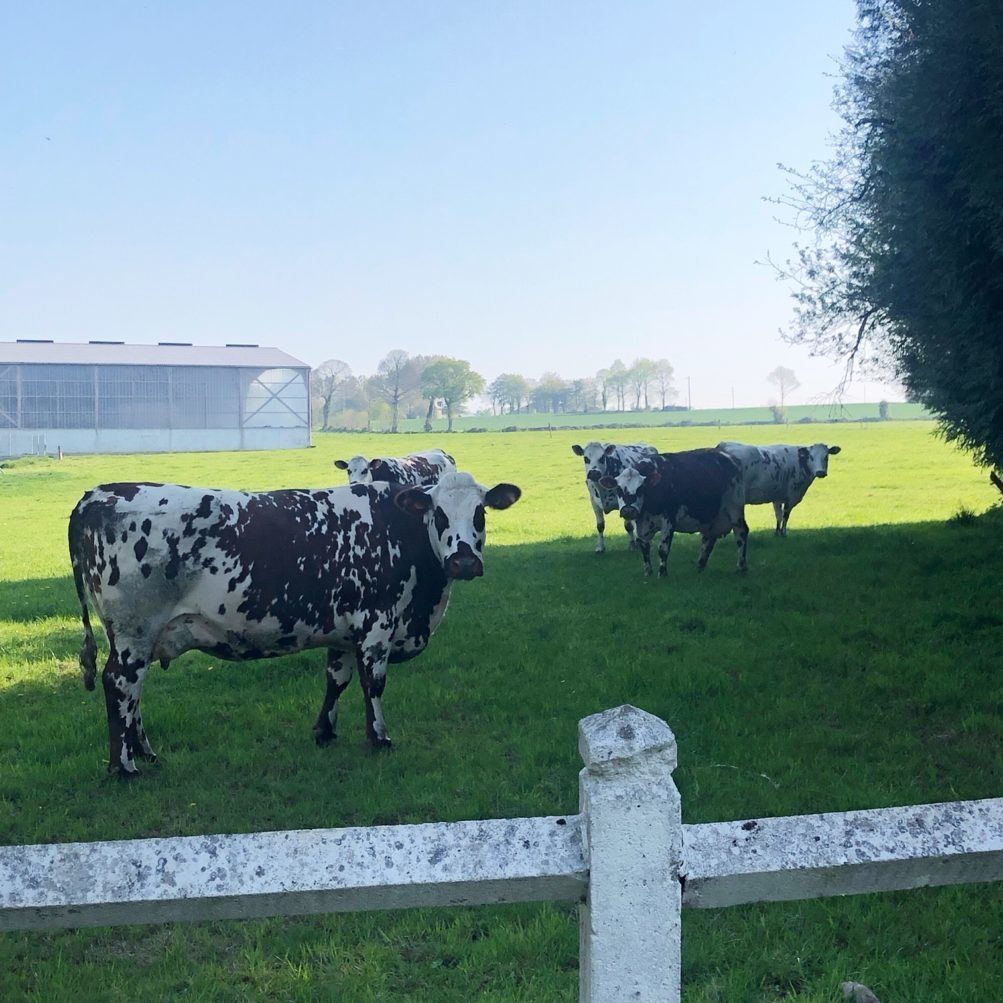
SUNDAY SHUTDOWN #14 Milk an dairy: but mostly milk because to cover dairy as an entire category is too much information for a Sunday.⠀
It was posed to me at a workshop recently “humans are the only mammal that drink milk from another animal” and that the fact I was referencing cow’s milk as a good source of nutrition was wrong. We are also the only animal to drive cars, peel our vegetables, cook using gas and wear clothes and but that doesn’t mean it’s wrong. Does it?⠀
So I just wanted to set the record straight. Dairy is one of the best sources of nutrients we have available to us. It contains calcium and vitamin D which help to protect our bones and B12 which is important for red blood cells. Protein to aid muscle repair and growth. Water and electrolytes for hydration levels and cell regulation. Cow’s milk is pretty much our only source of iodine, a mineral often overlooked yet extremely important for pregnant women and young children, it helps our brain develop. (Many plant drinks don’t contain it so check the label). It’s also relatively cheap, tastes nice but unfortunately doesn’t have a great carbon footprint.⠀
Dairy and cancer risk. There is no research to suggest dairy increases or causes cancer. In a meta-analysis conducted by Lu et al in 2016 (this is where lots of studies are reviewed and combined into one review so the research is strong) no relationship between the two was found.⠀
Bone health. There was once a school of thought that dairy consumption negatively affected bone health. Ie. Caused fractures. What we do know is that milk consumption as a child is most important as this has a protective effect on bones later on in life.⠀
Acne I hear you say? There could be a link here, but only in some people. Looking at the small number of studies that have been published, those with an increased dairy intake also had increased presence of acne. However, the evidence is only observational which means it’s not strong enough to link the two together.⠀
Lactose intolerance is when your body cannot digest lactose from dairy products. Some children may experience an intolerance to lactose but grow out of it after about 1 year. True dairy allergy only affects about 1-2% of children. It’s worth noting that when you routinely stop consuming dairy products, the body can produce less (down regulate) lactase. This is the enzyme that digests lactose (milk). Therefore when/if you reintroduce it you may experience problems digesting it until your body can regulate the lactase enzyme again.
If you are wanting to try plant based drinks (they aren’t milk really) then go for it. But not at the sole detriment of cows milk. I’d advise to include both. Cows milk for coffee, almond milk for cereal.
Also post endurance exercise milk is very hydrating, more than water in fact. It contains mostly water but also electrolytes and protein for muscle recovery.
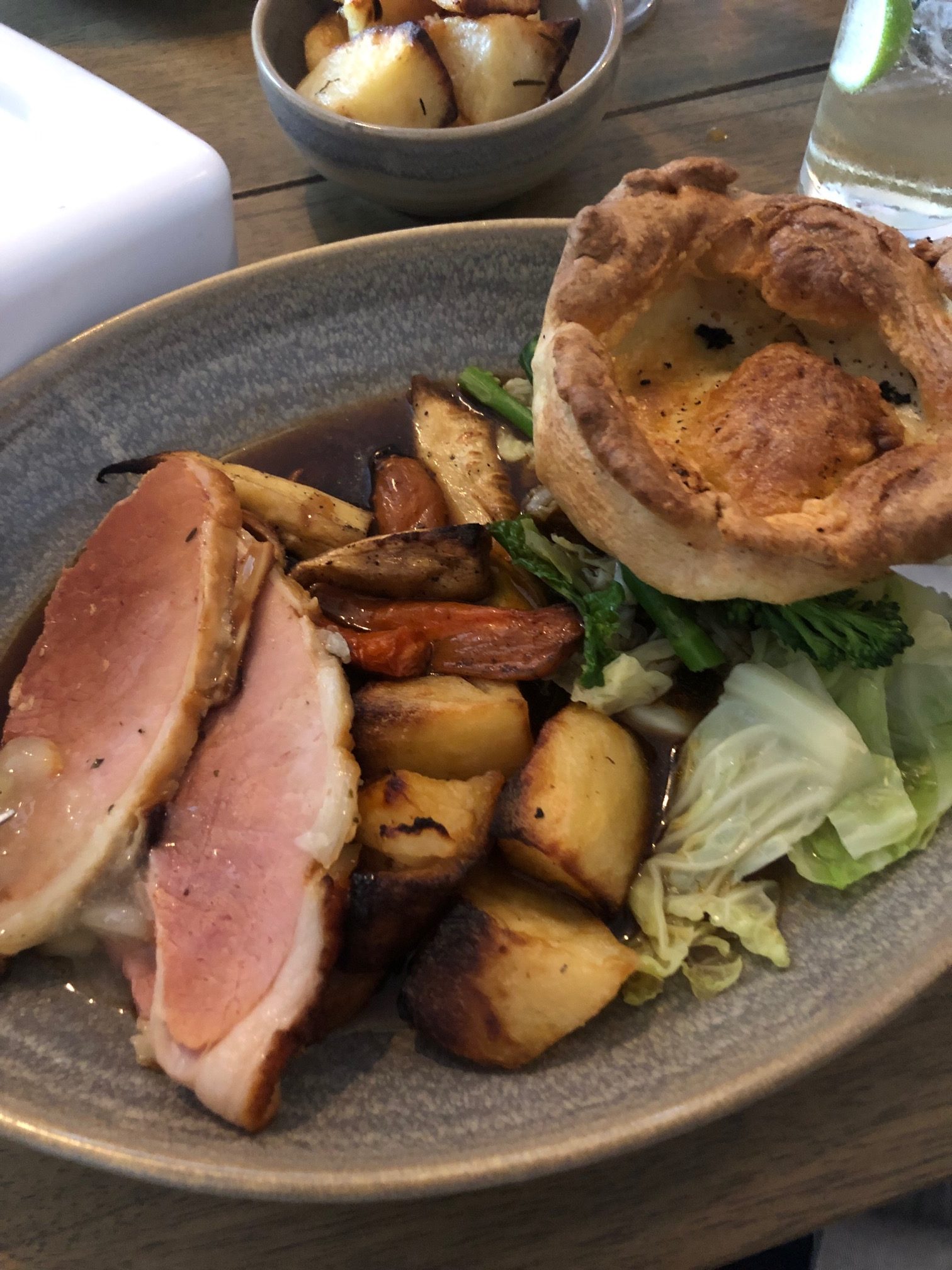
SUNDAY SHUTDOWN #13 Good food vs bad food vs just food: think about that for a minute.⠀
I’m getting pretty fed up of hearing people use a “feeling” or “emotion” to describe a specific “food” but it’s so inherently engrained in our lives it seems normal. Us of a certain era have called foods good or bad for as long as we can remember, it’s almost just “what we know”. However, food is not good, bad, dirty, healthy, clean, guilt free, a treat or unhealthy.⠀
Most people categorise bananas as healthy or good, yet only eating bananas wouldn’t be that good or healthy for you would it?⠀
Sure food can be part of a happy occasion, it can make you feel great for a number of reasons and sometimes not make you feel very good at all, think sick, bloated or by causing a reaction such as an allergy. But it is so much more than good or bad, it gives us energy, helps us stay focussed, forms part of our social lives and keeps us alive!⠀
So the next time you call a food good or bad, try to catch yourself and reframe it as just food. Remove the rule. Focus on looking after yourself. ⠀
Rather than restrict bad foods and only eat good foods, try to allow yourself all of the things you love but work out when and how much you need them within the context of your whole diet and lifestyle. ⠀
This also takes time. It won’t happen overnight. No good foods. No bad foods. Just foods.
Also Sundays are for roast dinners. Always. ⠀

SUNDAY SHUTDOWN #12 Fructose makes you fat. But does it though?
It is a commonly asked question that the consumption of fructose contributes to weight gain or is even solely responsible for gaining fat. That for some reason, fructose is worse for you than glucose or lactose. It is highly likely this has stemmed from the rise in overweight and obesity over the last 20-30 years in line with an increase in consumption of fructose, most notably found in fizzy drinks.
Fructose is a form of sugar and is commonly found in fizzy drinks, fruit, agave, honey, salad dressing and desserts. The body cannot use fructose as an energy source straight away and therefore it must break it down into glucose which can then be used for energy or be stored in the liver or muscles.
But does it make you fat?
In a review of the evidence relating to high fructose corn syrup (HFCS) and weight gain conducted in 2007 it was concluded that HFCS does not contribute to overweight or obesity any differently to energy being provided from other food sources. This study was conducted in the USA by an exert panel pulled together by The Centre for Food, Nutrition and Agriculture Policy.
That being said, Morenga et al, 2013, found that consumption of fizzy drinks is related to weight gain, however when this was adjusted for total calorie intake, the statistical significance of this link became weaker. Basically, when they adjusted the diet for calories from other sources there was no observed difference in weight, irrespective of where the calories came from.
More recently, Rosset et al., 2016, investigated if fructose is more involved in cardiovascular and metabolic diseases than calories from other macronutrients, such as protein and fat. They found that there is strong evidence to suggest that sugar consumption is high in obese patients. However, excessive consumption of fructose or sugar, independent of overconsumption of total energy is not solely responsible for weight gain.
The over-riding evidence on “fructose making you fat” is not conclusive. To further add to this, as humans we very rarely consume fructose on its own, we consume foods which contain a variety of different sugars and other nutrients like protein and fat too.
When it comes to fat loss or gain it all comes down to energy balance, which means calories in versus calories out. If you are consuming an excessive level of fructose and have been gaining weight, it’s the total over consumption of calories (or food) driving the gain, rather than the fructose itself.
Recent Comments